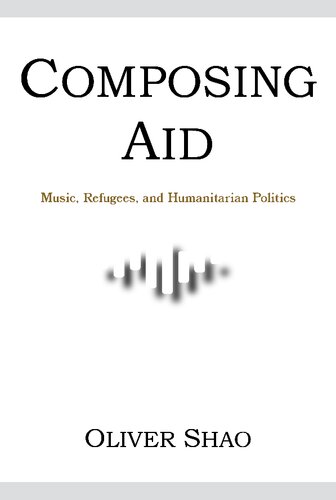

Most ebook files are in PDF format, so you can easily read them using various software such as Foxit Reader or directly on the Google Chrome browser.
Some ebook files are released by publishers in other formats such as .awz, .mobi, .epub, .fb2, etc. You may need to install specific software to read these formats on mobile/PC, such as Calibre.
Please read the tutorial at this link: https://ebookbell.com/faq
We offer FREE conversion to the popular formats you request; however, this may take some time. Therefore, right after payment, please email us, and we will try to provide the service as quickly as possible.
For some exceptional file formats or broken links (if any), please refrain from opening any disputes. Instead, email us first, and we will try to assist within a maximum of 6 hours.
EbookBell Team

4.4
82 reviewsMusic and arts initiatives are often praised for their capacity to aid in the rehabilitation of refugees. However, it is crucial to recognize that this celebratory view can also mask the unequal power dynamics involved in regulating forced migration.
In Composing Aid, Oliver Shao turns a critical ear towards the United Nations-run Kakuma Refugee Camp in Kenya, one of the largest and oldest encampments in the world. This politically engaged ethnography delves into various cultural practices, including hip hop shows, traditional dances, religious ceremonies, and NGO events, in an urbanized borderland area beset with precarity and inequality. How do songs intersect with the politics of belonging in a space controlled by state and humanitarian forces? Why do camp authorities support certain musical activities over others? What can performing artists teach us about the inequities of the international refugee regime?
Offering a provocative contribution to ethnomusicological methods through its focus on activist research, Composing Aid elucidates the powerful role of music and the arts in reproducing, contesting, and reimagining the existing migratory order.